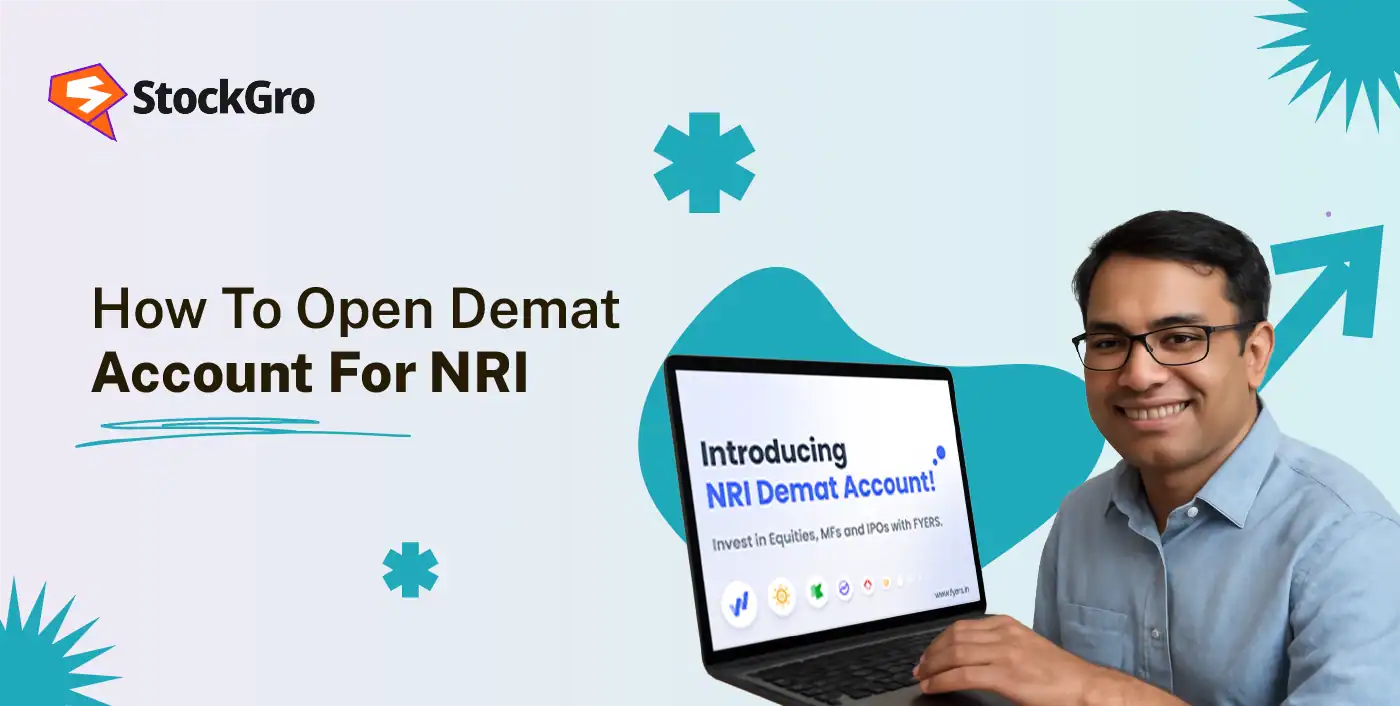
Investing is setting aside money with the expectation that it grows over time to build a corpus that can fund your goals, aspirations, or specific needs. Investing for individuals is very different from investing for corporations. One thing that is common for investing is the need for a demat account. Both individuals and corporates require a demat account for investing or trading. This blog serves as a guide for corporates looking to open a demat account. In a few minutes, you will be able to understand what a corporate demat account is, who can open one, the regulations surrounding it, and more in detail.
What Is a Corporate Demat Account?
A corporate demat account is for registered companies and business entities to securely hold stocks, bonds, and mutual funds in digital form. The idea is to maintain and manage their investments more efficiently and transparently.
Regulatory Mandate & Why It Matters
Securities Exchange Board of India (SEBI) mandates and regulates the opening, updating, and closing of corporate demat accounts in India.
SEBI requires adherence to the Companies Act regulations to ensure that only authorised entities are allowed to open corporate demat accounts. A company must comply with all regulatory requirements proposed by SEBI to make its investment experience smoother and hassle-free.
Who Can Open a Corporate Demat Account?
The following entities are eligible to open a corporate demat account in India:
- Private and Public Limited Companies: Registered companies- both private and public- can apply for a corporate demat account. This helps them manage their investments smoothly and efficiently.
- Limited Liability Partnerships (LLPs): LLPs registered under the LLP Act are also eligible to open a corporate demat account.
- Hindu Undivided Families (HUFs): HUFs can also register for a corporate demat account, with the head of the family (i.e., ‘karta’) being the authorised signatory.
- Trusts and foundations: In some cases, trusts, foundations, and registered societies are also eligible to open a corporate demat account. In partnerships, some partners can open individual accounts.
- Government agencies: Some government agencies, such as public sector units (PSUs), are also eligible to open a corporate demat account.
Required Documents (by Business Structure)
The documents required for demat account varies as per the business structure.
Partnership Firms
A partnership firm is an entity wherein two or more individuals come together, combining resources and money to form a business. They can open a corporate demat account with the following list of partnership demat documents:
| Document name |
| PAN card of the applicant partner |
| Address proof |
| Balance sheet (for the last 2 financial years) – copy |
| Certificate of Incorporation/ Registration Certificate |
| Partnership deed |
| List of partners and authorised signatories |
| IDs of all partners |
LLPs
A Limited Liability Partnership structure is like a traditional partnership firm, but here partners do not have unlimited liability. All partners have limited liability and are treated as an entity separate from the firm. LLP demat documents include:
| Document name |
| PAN card of the LLP |
| LLP agreement |
| Current address proof |
| Balance sheet (for the last 2 financial years) – copy |
| Certificate of Incorporation/ Registration Certificate |
| List of partners and authorised signatories |
| Annexure page with all partners’ details |
Private Limited Companies
A Private Limited Company is a business that is considered a separate legal entity from its owners. Its shares are restricted from being sold to the public. The following is the list of pvt. Ltd. company demat documents:
| Document name |
| PAN card of the company |
| Current address proof (Bank passbook) |
| Balance sheet (for the last 2 financial years) – copy |
| Certificate of Incorporation/ Registration Certificate |
| Board Resolution |
| Shareholding pattern |
| Memorandum and Articles of Association |
| Details of directors |
| Signatory list with all authorised specimen signatures |
Trusts
A trust is a legal structure wherein a settlor, an individual or entity, transfers assets to a second party, called a ‘trustee’. The trustee manages these assets for the benefit of a third party, called a beneficiary. The arrangement is established through a ‘trust deed’. Trust demat documents required are:
| Document name |
| PAN card of the applicant |
| Current address proof (Bank passbook) |
| Balance sheet (for the last 2 financial years) – copy |
| Registration certificate of the trust |
| Trust deed’s copy |
| Signatory list with all authorised specimen signatures |
| PAN and Aadhar of parties registered in the Annexure |
Opening Process: Steps from Form to Activation
Below is a step-by-step guide to opening a corporate demat account:
- Choose a Depository/Bank: Thoroughly research depository participants (DP) or banks that provide corporate demat account services. Ideally, they should be SEBI-registered.
- Account opening form: The first formality that you need to complete is filling out an account opening form. These are available both online and offline- depending on how you want to complete the process.
- Submit the required documents: You can refer to the list above for a preliminary understanding of all documents required for opening a corporate demat account. Depending on the chosen depository, additional documents may be required.
- Verification: The chosen depository typically requires in-person verification of all authorised signatories to complete the KYC process.
- Account Activation: Upon completion of all formalities and successful verification, the DP will forward the necessary login details, guidelines, and account confirmations to you.
Broker-Specific Notes & Tips
Some of the brokers that provide corporate demat account opening services are:
| Broker name | Their Key Features of Corporate Demat Accounts |
| Zerodha | ₹500 Account Opening Charge₹250+GST annual maintenance chargeCan only be opened offline |
| Angel One | Offline account opening processNo account opening fees |
| ICICI Direct | 3-in-1 account services like trading, banking, and a demat account |
| Groww | No account opening chargesOnline account opening process |
Please note: These are just some of the brokers that provide corporate demat account opening services. Many others are available to select from. Choose one that suits your requirements.
Key Benefits of a Corporate Demat Account
Corporations can benefit from a corporate demat account. Here’s how:
- Tax efficiency: Corporate Demat Accounts can prove to be beneficial in tax savings. Account-related expenses can be treated as business expenses. In case of any Future & Options-related losses, they can be treated as business losses, reducing tax liability.
- Increased security and speed: Investment transactions are more secure and faster than physical investments.
- Better management of investments: All of the investments in equity, mutual funds, bonds, etc, can be managed under one account. This ensures better management of the investments.
- Compliance: The account is SEBI-compliant and therefore ensures all regulations are complied with.
Possible Challenges & How to Mitigate Them
While there are plenty of benefits, some risks also need to be considered when opening a corporate demat account:
- Time-consuming process: The process of obtaining a corporate demat account can be time-consuming, as many brokers and DPs require an offline verification process. The only way to mitigate this is by keeping all your documents ready and choosing an efficient DP that takes the least amount of onboarding time.
- Security risks: Cybersecurity threats, such as hacking or phishing of accounts, can take place. Make sure you update your passwords and keep a check on all your accounts regularly.
- Market risks: Equity markets expose investors to market volatility risk. To secure your investments, maintain a well-diversified portfolio.
Conclusion
Overall, corporates can benefit greatly from opening a corporate demat account. This account ensures efficiency and the smooth flow of investments. However, it is vital to choose the best broker as per your needs.
FAQs
A corporate demat account is an account that allows businesses to hold their investments in an electronic form. Any registered business can apply for a corporate demat account. Business structures like partnership firms, LLPs, private and public limited companies, trusts, amongst others, can apply for a corporate demat account.
Yes, a Trust or a Partnership firm can open a corporate demat account. They can check the list of documents that are needed for each.
The list of documents required to open a corporate demat account differs across different business structures. However, commonly, the PAN card of the applicable business/ individual, incorporation certificates, address proofs, balance sheet for the last 2 years, amongst others.
The process of opening a corporate demat account starts with filling out an account opening form, submitting the required documents, and verification through a SEBI-registered depository, and finally receiving the login details for your account. The typical turnaround time for opening a corporate demat account is three to seven working days.
Yes, a board resolution is mandatory for opening a corporate Demat account. It authorises the company to open and operate the account and designates authorized signatories who can handle transactions and submit necessary documents. The resolution must be certified and submitted to the Depository Participant (DP) as part of the account opening process, ensuring compliance with SEBI and Companies Act regulations.

